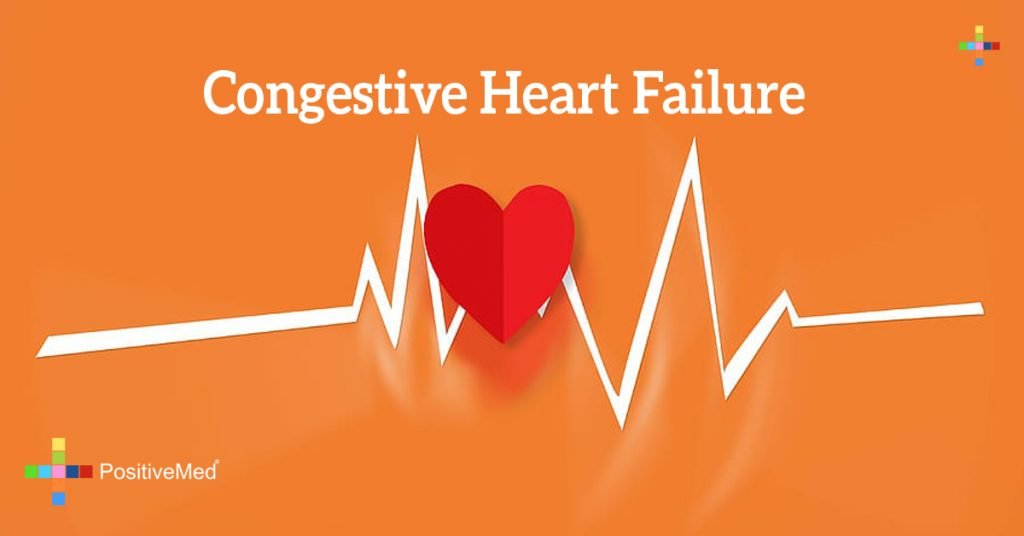
Congestive Heart Failure
By PositiveMed-Team
Edited By Stephanie Dawson
Typically heart failure occurs when the heart is not strong enough to efficiently pump blood to the body, supplying all needs. It’s defined as a complex clinical syndrome affected by any structural or functional cardiac disorder that will impair the function of the ventricles, filling and ejecting blood through arteries and veins. This is not the same as cardiac arrest or heart attack. Someone can live with heart failure or control the symptoms with medication and proper diagnosis. There are several risk factors that increase the chance of suffering heart attack such as obesity, high blood pressure, or diabetes mellitus. Two of them are metabolic conditions that are mostly dependent on our lifestyle and levels of stress. Cardiovascular diseases are the top 3 mortality causes all over the world.
The World Health Organization (WHO) refers to it as an epidemic, showing an epidemiologic trend to rise, especially in countries like the United States, because of the increase of risk factors mentioned above. Also, heart failure has been identified as a primary disease for the elderly, however any person with a sedentary lifestyle or obesity might be a potential candidate for cardiac arrest and subsequent heart failure.
Causes:
Its primary causes include heart attack, arrhythmias, tachycardia, heart block, valvular disease, years of smoking, or a valve defect due to high blood pressure, congenital heart disease, or conditions such as diabetes, anemia, pregnancy, or hyperthyroidism that put chronic extra effort on the heart. Renal failure and dehydration are direct causes. Over time, the heart will need to pump harder, extra effort that will weaken its function and will make the walls of the heart thicken and enlarge. This causes the heart to lose the synchronization and efficiency in blood distribution and pumping. Congestive heart failure causes pressure in the heart chambers and blood may back up to the lungs or to veins. This can happen days or months after the heart block, or due to chronicity of risk factors, at any time.

Not all heart failure is congestive. There will not always be fluid or blood seeping out into the lungs, legs, or other tissues. In all types of heart failure there is shortness of breath, low blood pressure, or fluid retention.
Symptoms:
Common symptoms are dyspnea or shortness of breath, fatigue, numbness, weakness, and increased heart rate or tachycardia. With congestive heart failure fluid will back up to the lungs, causing congestion, which causes a dry or hacking cough. If fluid has gone to the legs it causes swelling or edema in extremities and abdomen. All these are symptoms of a weakened heart, you might present one or two of these symptoms, or all. These symptoms might be more evident when performing any physical activity, however they can be manifest at rest also.
Diagnosis:
Your physician will inquire about symptoms, their frequency and intensity, personal or family history of risk factors such as strokes or heart attack, tobacco, alcohol, or drug use. Irregular heart rate and rhythm will determine if there is a third heart sound. An electrocardiogram (ECG) is a test that will evaluate heart activity precisely looking for arrhythmias or any abnormalities. Chest X-rays will detect fluid in the lungs that could be a cause of mortality.





